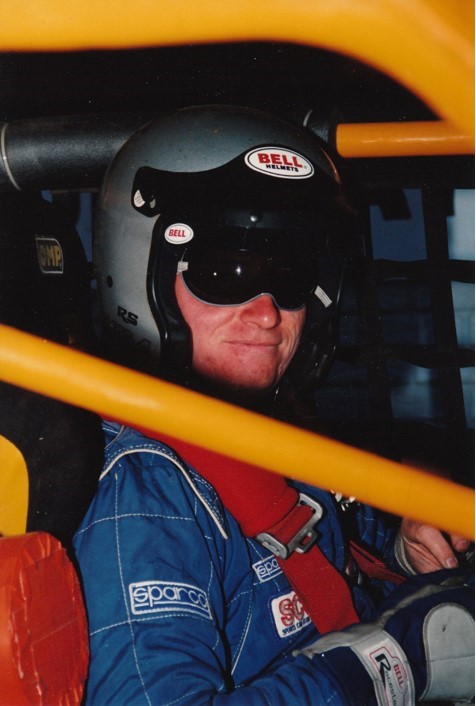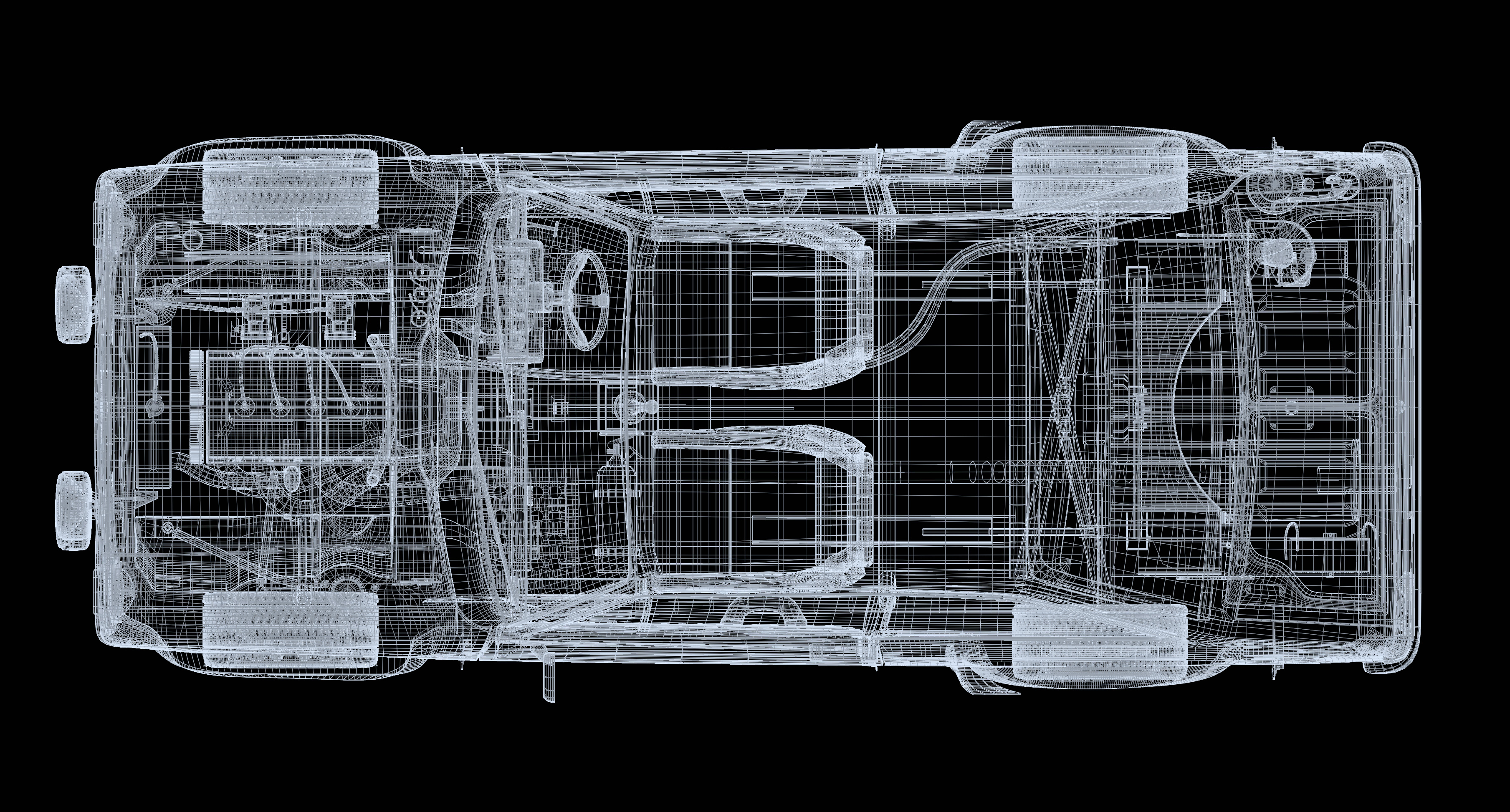Prof. Stephen Baysted (Audio & Music Director)

Professor Stephen Baysted has been scoring soundtracks for over 20 years. Nominated for three Jerry Goldsmith Awards for Best Score, two Motion Picture Sound Editors “Golden Reel” Awards, and two Game Audio Network Guild Awards, Stephen’s starkly emotive recordings from GTR to the epic soundtrack for Project CARS 2 have been inspiring a generation of sim racers to get on track. For Straight4’s new sim, he’s also doubling his duties as audio director.
You and Ian Bell have been working alongside each other for over 20 years (and counting). How did that all start?
SB: Ian and I originally met racing online—I forget which game it was now—and he asked me join up to his project. At the time, it was just a forum called the SimBin forum that hosted our first mod that would eventually evolve into our first sim racing game, GTR. Eventually we met in person and have been close friends ever since.
That friendship was sealed when, in the early days of the development of GTR in 2003 and 2004, we drove all over Europe attending races with Henrik Roos’s racing team and sharing some really great times! Great memories—can it really be 20 years already?—and I definitely could never have imagined we’d still be making AAA games all these decades later …
What exactly does an Audio Director do anyway?
SB: The role of the Audio Director is to lead the audio team and ensure that the “audio vision” of the game is implemented. The Audio Director also works closely with the composer and helps determine the sound world of the game. Since I’m both Audio Director and Composer, I have to try to separate the roles out. I’ve been doing this for the past 18 years though, so I’m used to compartmentalising them.
Sometimes, however, I do need to give myself a good talking to!
How does music “fit” in a racing sim?
SB: My primary aim with the music is to immerse the player in the world of motorsport and to try to convey the range of emotions and psychological states that racing drivers experience before, during and after the race: Fear, bravery, rivalry, euphoria, tension, aggression, and the effects of adrenaline.
We always need to remember that motorsport is brutal, it’s dangerous—it’s a war out there on the track and the drivers are modern-day gladiators risking their lives just to beat their opponents.
The music tries to reflect this in its language, its scale, and in its scope. Traditionally in sims there is no music during actual gameplay, so all of the immersive work needs to be accomplished in the menus by preparing the player for racing.
This is one of the reasons why I incorporate car sounds, pit-to-car radio, and driver voice overs in the music—they all contribute to the immersive effect.
Awards aside, what’s the one thing you’re most proud of in your career?
SB: Over the years, it has been an immense privilege to work with some of the finest orchestral musicians in the world and have our game music recorded in the best studios.

Looking at the studio’s new sim, what’s your brief, and what does your process look like from here to launch?
SB: My brief is simple: to work with the audio team to bring the most immersive and intense audio experience to the game player. On the music side, I will begin writing the score soon, and the objective is to create a powerful and immersive soundtrack for our next sim racing title.
Because sim racing needs auditory cues to “help” the sim racer understand what a car is doing (for example, the squeal of tyres because G-forces are unavailable), the pure sound of motorsport is sometimes diluted. Do you agree? And is there a solution that would enable the sheer auditory insanity of a racing car at full pitch to become part of a sim racing title?
SB: This is an excellent question. I would not necessarily say the sound is diluted. Rather, that we need to adapt it to help the player understand what is happening, moment to moment, as they drive the car. So the tyre scrub and skid sounds are mixed louder than in real life to give these detailed clues to the player.
If you’ve ever been to a GT or F1 race, for example, you will know just how savage and brutally loud the cars are. In short, yes, it’d be impossible to replicate that sonic experience as it would be dangerous, and you would need a hugely powerful audio system to match the extraordinarily high Sound Pressure Levels of the real cars.
However, there are several things that we can do to enhance the players’ experience and make them feel as though they are actually there in the cockpit, or at trackside hearing the cars roar by.
When we hear a racing car in close proximity, we are also feeling it resonate through our bodies; it's physiological as well as auditory. Our cockpit audio will be unprecedented in its detail, giving the players a visceral experience as they drive.

What sim do you feel has come closest to replicating the sounds of motorsport?
SB: The next game I’m working on!
What are you most excited about with the new sim you’re working on?
SB: Using the very latest technologies to push the boundaries of what is currently possible to bring the most authentic audio experience to the player.
It’s also fantastic to be working alongside such talented people in all departments once more.
The raw sounds of motorsport are always so much “dirtier” than what we see in sim racing games. Would you agree and if so, how do you create a less “predictive” model for engine sounds that rarely, for example, sound the same from lap to lap?
SB: We have a number of technologies at our disposal that will allow us to subtly vary the sounds lap after lap, so the car will sound more 'alive' as it were. Also, the way in which the car interacts sonically with the track, and the environment is an important factor in this regard.







.png)

























